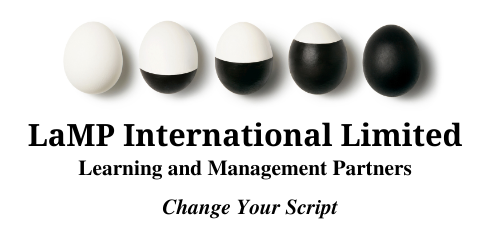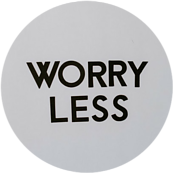I am regularly asked, what is career coaching for? It seems to be the new buzz and everyone wants to get on board. Before doing that, you should take the time to understand what it is, what it should be used for and how you may be able to benefit from it. The first point to clear up is that coaching is not the same as counselling or mentoring.
Each one is different and has its own application. There are fine lines that divide them and sometimes you may cross that line. You want to ensure that you stay true to the essence of coaching, however, to make sure that you get the most from it.
The job market is increasingly challenging, even with all your investment in qualifications and learning, finding that dream job that brings you daily joy may seem impossible.
Perhaps it is not the job though. Maybe, you need to start looking inward and that’s where your Career Coach comes in.
Career Coaching Unraveled
In the early 90s, I became General Director for one of the world’s most successful leadership development companies. While there, facilitating programmes in productivity, leadership, time management and effectiveness, I was introduced to coaching.
After completing our programmes, many graduates became dissatisfied with their career positions and wanted support to make important changes in their work and personal lives.
I was all too happy to assist. Back then, coaching was not a common profession as it is today. I moved from being a qualified Facilitator to a qualified Behavioural Counsellor and began to create my own coaching support program.
Over time, I watched Coaching and mentoring grow into respectable and sought-after professions. The rise of the internet has made it a globally recognised discipline and of benefit to millions.
The ultimate goal of coaching is to help people make informed decisions and choices about their career path and development.
This can be done using a range of resources – assessments, journaling, feedback sessions, role plays, resumes. The objective is to be creative, provocative and engaging,
The discovery of anything that may be blocking you from progressing and moving closer to your goals is, of course, at the heart of the coaching process.
Not a 1-Done Deal
The approach used is a solution-oriented one and requires that you are able to visualise the steps that you need to take to achieve your career goals and objectives. You want to learn about your effectiveness and functioning and how you can improve these to become more assertive about managing and directing your career.
With this understanding, you may realise that coaching will not start and finish in 1 session.
To help you, help yourself, there must be a period of discovery and research during which it is imperative that you are honest and true to yourself. Your Coach will only be able to genuinely assist you if you are clear and honest about your experiences.
By nature and mostly training, your Coach will be curious about you and will ask a plethora of questions. Many of these may make you very uncomfortable in the beginning. Perhaps you have not been asked these types of questions before or they may be directed to aspects of yourself you are not comfortable discussing.
Your Coach will be honest, empathetic and compassionate. The more you are able to trust him/her and the process, the better the outcome will be.
Here’s an insightful video from Heather Christie that gives you an insight into how coaching may benefit you.
Assessments bring Awareness
I always begin my coaching sessions with an assessment, or 2. It does not matter if I know that individual personally or if I am starting with a previously unknown individual.
The process is the same.
Actually, I am not always eager to work with someone who is close to me. Working along an authentic journey can be challenging and you may be tempted to feel displeasure with the questioning and feedback from your Coach in the beginning.
The truth is hard to hear and swallow.
This is why I always begin with assessments. It keeps the relationship compartmentalized and well managed. You know, from the start, that the relationship will be based upon your honesty, willingness to share and current and present discoveries.
This helps to create an environment of trust. Without trust, coaching will not be successful and more harm than good may be created.
Psychometric assessments, wellness benchmarks, interest inventories, job analyses and accomplishment exercises are wide and varied. When necessary, a full-circle approach may be used and this would include feedback from peers and select inner-circle members.
Even at work, your functioning is not linear. The more feedback that can be acquired, contemplate and effectively used, the more you will benefit from your coaching sessions.
What You Should Expect to Gain
So why should you consider coaching?
Let me share my personal perspective first.
I have been an internationally qualified and certified Coach for almost 20 years now. To become a Coach, just like a Facilitator or Counsellor, you are required to participate in the process yourself. That means you should also have a Coach.
Many of my peers did this only to receive their certification. Once received, they remove themselves from the process. I never did. Instead, I chose to continue using my Coach, albeit not frequently. Whenever I feel the need for support in my work or personal life, I reach out to my Coach.
The benefits are so many that I choose to keep this process active in my life.
Instead of losing time or sleep over issues and when I want to brainstorm an idea, thought, feeling or experience, I reach out to my Coach.
The trust and confidence between us are implicit. I always leave my sessions feeling lighter, more confident, more motivated and highly inspired.
The feeling of aloneness that is often present in life can consume you and place you in a position of feeling that you cannot get help to move forward. Friends and loved ones may extend advice and a listening ear but they do not have the professional training and expertise to identify what, specifically, may be holding you back.
If you are serious about taking charge of your career, then experiencing coaching in your early career may be one of the best decisions you can make.
The Early Years are Best
There is no doubt that career coaching can benefit you at any juncture in your professional life. However, deciding to work with a Coach early on in your career could help you establish a more solid foundation.
Rather than waiting until you start climbing the corporate ladder and start facing your flaws and failings, early coaching can warn you of potential stumbling blocks and blockers. As situations arise, you have an opportunity to explore them and learn healthy ways to work with and through them.
Getting a good job, keeping it and navigating the world of work can be daunting. Much of it has little to do with a well-written resume or a good network but more to do with your mindset and resilience. These are things that you cannot learn in a book or from watching a video.
You learn from experience – your experience.
Coaching will help you to gain the strength in behaviours that you need to get ahead.
Remove Your Job Anxiety
A major cause of anxiety for many persons as they travel along their career path is unknowing. They do not know:
- how to navigate their career,
- what decisions to make to improve their functioning and effectiveness,
- what to do with the skills they have,
- how to learn new skills,
- what is keeping them back from getting ahead,
- how to structure their resume,
- where to start networking.
In essence, many people really do not know how to get where they say they want to go. This creates even greater anxiety and frustration and retards most of the efforts being made.
Another area of work that causes increasing anxiety is how to balance a career and your personal life. This is particularly important for single parents, most of whom are single mothers.
Women feel much more pressure to compete and give more in the workplace. The glass ceiling remains out of sight and reach for many women and learning how to work through the walls that they encounter often requires assistance.
I was grateful to attain the highest executive offices, around the world, as a woman. The coaching support that I received over the years helped me with those achievements and I am forever grateful.
Today, I am the owner and manager of 4 businesses of my own and I continue to coach thousands of others as they seek to achieve their own career success.
Career Coaching is not Job Placement
Some final words for you to consider.
Career coaching is not meant to get you a job. It is not a recruitment facility and your Career Coach is not there to find a job for you. Getting a job is up to you.
The purpose of coaching to improve your ability to progress in a more meaningful and healthier way in your career.
Your career should be a source of joy and satisfaction. It should be an extension of who you are, your values, ethics and goals. It is only with this alignment that you will feel confident and assertive enough to embrace and own success.
That is by far, the main purpose of career coaching.
Cassandra is the Founder, Managing Director and Lead Partner at LaMP International Limited.
She is an internationally trained, experienced and versatile Executive, Facilitator, Speaker, Coach and Online Entrepreneur. Her expertise in Organisational Behaviour, Change Management. Group Work, Communications, Talent Development and Strategic Human Resources Management allow her to bring a unique and engaging style to the table.
When not in the dynamic business arena you can find her travelling the world with her daughter, writing, hiking, enjoying extreme sports, capturing life and nature or getting her hands dirty in the soil.





It’s great that you elaborated on career coaching and how it’d push you in the right direction toward your dream job. The other day, I spoke with my sister about how she’s tired of her job and wants to quit, but she doesn’t know what else she’d do, so I believe she’d benefit from working with a career coach. I appreciate your tips on career coaching and how it’d change your life positively.
Hi, Eli.
Thank you for your feedback and for sharing your perspective on Career Coaching.
Your sister’s experience sounds familiar.
For me, back then, it was not as structured as it is today.
Actually, when I reflect, I was pushed into many boxes that did not feel right.
As I matured, however, I was better able to quickly grasp the feedback and learning coming my way.
All those experiences have resulted in me enjoying success and a fulfilled life as a Coach and Mentor to thousands of people around the world.
It would be my pleasure to have an exploratory discussion with you and your sister. ?
Wishing you both the very best.
Cassandra